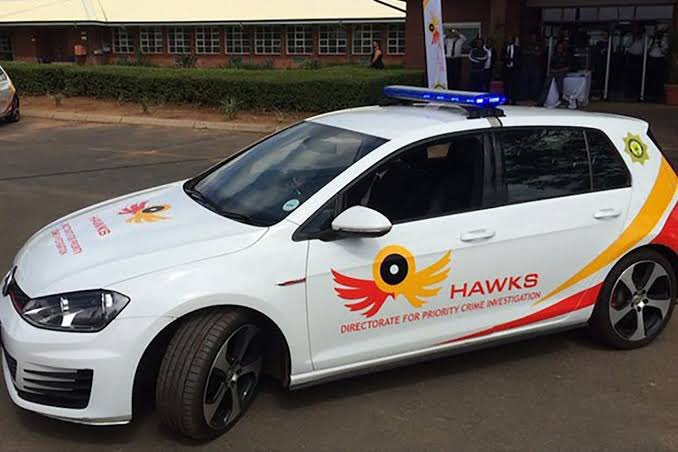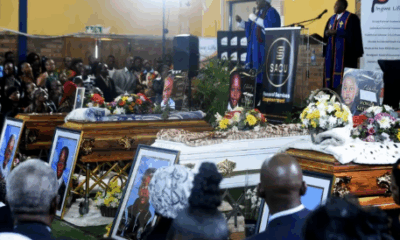Published
8 months agoon
By
zaghrah
The widening cracks in South Africa’s immigration system have again been exposed — this time with two more arrests in Durban, linked to an ongoing passport fraud syndicate that’s already seen 38 people nabbed, including seven Home Affairs officials.
The Hawks confirmed on Monday that the latest suspects were arrested as part of an extensive probe into a scam that allegedly helped undocumented foreign nationals obtain South African passports using bribed citizens and corrupt officials — at prices starting from as low as R300.
The investigation, which began in September 2022, has uncovered a trail of fraudulent activity across multiple Department of Home Affairs (DHA) offices in KwaZulu-Natal, including Durban Commercial Street, uMngeni Road, Isipingo, Durban Central, and Eshowe.
According to investigators, South African citizens were recruited to sell their identities by posing as relatives or guardians of foreign nationals during passport applications. In return, they were paid small bribes — typically between R300 and R1,000 — for each successful transaction.
“These unlawful activities took place outside of regular business hours — evenings, weekends, even public holidays — when DHA offices were officially closed,” said the Hawks in a media statement.
Though it may sound like a low-level corruption scheme, the ramifications are anything but minor. With South African passports falling into the hands of unvetted foreign nationals, the implications range from border security vulnerabilities to international diplomatic risks.
Law enforcement has stressed that the operation involved organised networks — not just opportunistic individuals. This latest arrest brings to seven the number of suspects due to appear in the Durban Specialised Commercial Crimes Court on Tuesday, where they will face charges including fraud, corruption, and violations of the Immigration and Identification Acts.
Since the probe’s inception, 38 people have been arrested, including seven DHA employees and 31 private citizens. Notably, 24 of those suspects — including four DHA officials — have already been convicted, racking up a combined 310 years in prison.
The operation has earned praise from anti-corruption advocates who’ve long called for a deeper clean-up at the Department of Home Affairs.
“South Africa cannot afford to become a marketplace for illegal identity documents,” said an immigration watchdog representative. “What this case shows is that systems collapse when accountability is weak — but they can recover when the law bites back.”
On social media, the public reaction has ranged from outrage to resignation. Some users called it “just another day in the banana republic,” while others demanded that Home Affairs be overhauled entirely.
“We’re living in a country where criminals have more documentation than our unemployed youth,” one user tweeted.
This case follows months of controversy at Home Affairs, including long-standing complaints about bribery, fake marriages, and missing IDs, especially in rural areas.
As court appearances continue and investigations deepen, questions now shift to how deep the rot goes, and what safeguards are being put in place to prevent similar scandals.
Officials within the Department of Home Affairs have promised biometric upgrades, staff retraining, and even undercover operations to weed out corruption — but skeptics say systemic change needs political will, not just policy.
In the meantime, the Hawks have warned that more arrests are imminent as they follow the money and expose the broader web behind what is shaping up to be one of the most significant identity fraud crackdowns in recent South African history.
For Durban and the country the message is clear: South Africa’s identity is not for sale.
{Source: IOL}
Follow Joburg ETC on Facebook, Twitter , TikTok and Instagram
For more News in Johannesburg, visit joburgetc.com


Search Continues for Missing 16-Year-Old Girl After Gqeberha Beach Tragedy


The Digital Landscape of South Africa: A Story Told by Its Top Websites , Updated From December 2025


Gauteng Health pays rent while its own clinics stand abandoned


‘Shame On You’: Wife Of Afrikaner Arrested In The US Speaks Out


The R10 Killer: A Banned Poison Still Sold Next to Lipstick on Our Streets


Fraud syndicate bust in Bryanston after five-year global investigation















